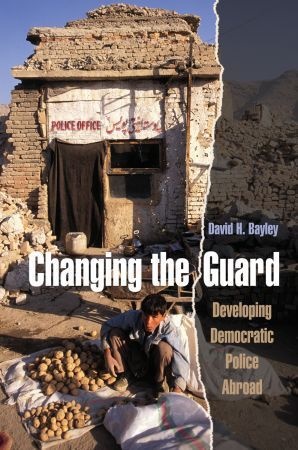Ulteriori informazioni
Zusatztext "David Bayley's long experience, thorough research and clear thinking shine through on every page of this book. He is one of the few writers in this field that combines an understanding of the internal dynamics of police organizations with insight into international assistance. Against this background, he manages to take the jumbled pieces of the police assistance puzzle and lay them out to form a cohesive and concise picture. But the book is not least a valuable contribution because David Bayley follows his research through to its final conclusions - conclusions that are both policy relevant and instructive for fellow academics."--Annika S. Hansen, author of From Congo to Kosovo: Civilian Police in Peace Operations Informationen zum Autor David Bayley is Distinguished Professor in the School of Criminal Justice, State University of New York at Albany. He is the author of Police for the Future (Oxford, 1994) and What Works in Policing (Oxford, 1998). A specialist in international criminal justice, he is currently a member of the International Oversight Commission for the reform of the police of Northern Ireland and is writing the United Nation's program for community policing in the rebuilding and reform of police in peacekeeping operations. Klappentext Every day the American government, the United Nations, and other international institutions send people into non-English speaking, war-torn, and often minimally democratic countries struggling to cope with rising crime and disorder under a new regime. These assistance missions attempt topromote democratic law enforcement in devastated countries. But do these missions really facilitate the creation of effective policing? Renowned criminologist David H. Bayley here examines the prospects for the reform of police forces overseas as a means of encouraging the development of democraticgovernments. In doing so, he assesses obstacles for promoting democratic policing in a state-of-the-art review of all efforts to promote democratic reform since 1991. Changing the Guard offers an inside look at the achievements and limits of current American foreign assistance, outlining the natureand scope of the police assistance program and the agencies that provide it. Bayley concludes with recommendations for how police assistance could be improved in volatile countries across the world. This book is required reading as an instruction manual for building democratic policing overseas. Zusammenfassung Every day the American government, the United Nations, and other international institutions send people into non-English speaking, war-torn, and often minimally democratic countries struggling to cope with rising crime and disorder under a new regime. These assistance missions attempt to promote democratic law enforcement in devastated countries. But do these missions really facilitate the creation of effective policing? Renowned criminologist David H. Bayley here examines the prospects for the reform of police forces overseas as a means of encouraging the development of democratic governments. In doing so, he assesses obstacles for promoting democratic policing in a state-of-the-art review of all efforts to promote democratic reform since 1991. Changing the Guard offers an inside look at the achievements and limits of current American foreign assistance, outlining the nature and scope of the police assistance program and the agencies that provide it. Bayley concludes with recommendations for how police assistance could be improved in volatile countries across the world. This book is required reading as an instruction manual for building democratic policing overseas. Inhaltsverzeichnis Preface 1: Problem and Opportunity 2: Democracy and Police Reform 3: U.S. Programs and Policy 4: Strategies of Reform 5: Security and Reform 6: Managing Assistance 7: Evaluating Impact 8: Organizing for Success Appendix: Execu...

